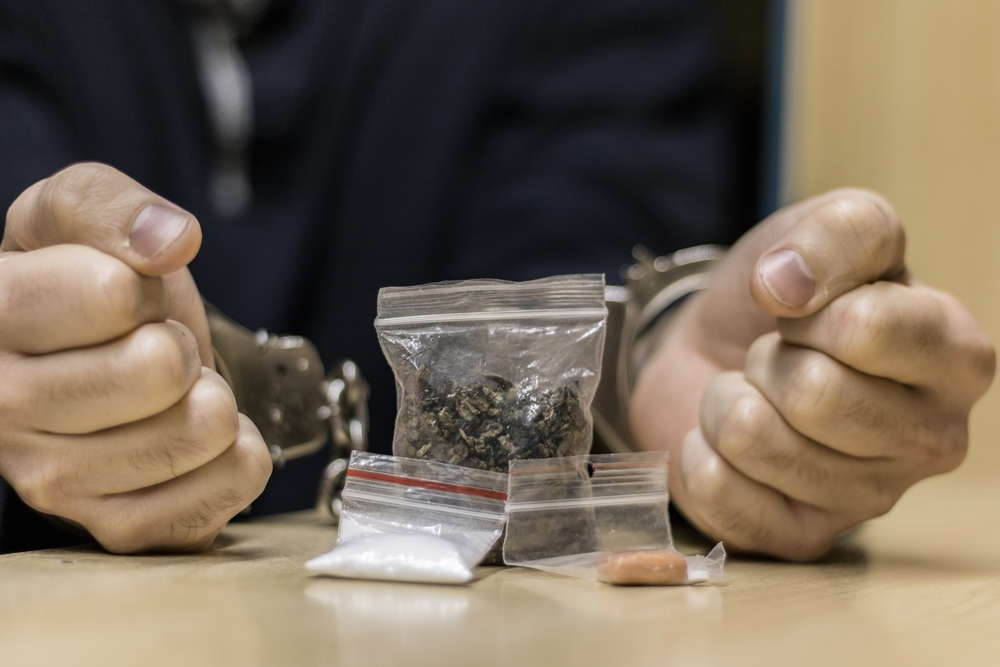Understanding Minnesota’s drug possession laws can be complicated. The state divides felony drug possession charges into five degrees depending on the type and quantity of the substance the defendant possessed. Possession of even a small amount of most drugs can come with a felony charge, so seeking out an attorney with relevant experience is an essential step to take if you’re charged with drug possession.
Because the potential penalties depend so much on the specific details of the case, understanding the degree of drug possession crime you could be charged with is important to making sense of your overall situation. In addition to the specificity of evidence, drug possession cases can also involve your privacy rights, further complicating matters.
Why Does The Degree of Drug Possession In Minnesota Matter?
The penalties for drug possession in Minnesota vary dramatically from a $300 fine to a 40-year prison sentence. This means if you’re arrested for drug possession, the potential implications and impact on your life can be very different depending on the severity of the charge.
Understanding what kind of potential fine or prison sentence you might be facing is essential to reaching the best possible outcome for your case.
Terms To Know
These are four important terms to understand when looking at Minnesota’s drug possession laws:
- Possession: To justify a drug possession charge, a prosecutor must prove that the defendant knew what the substance was and that the defendant was either physically in possession of the substance or constructively possessing it.
- Constructive Possession: A defendant can be charged with constructive possession if an illegal substance was in a location that the defendant had control over, such as a closet or a car’s glove compartment.
- Aggravating Factor: These are aspects of the situation that can increase the degree of the criminal charge. Aggravating factors can include the involvement of a gang or a drug sale taking place in a school zone.
- Schedule: Illegal drugs are classified using five levels: Schedule I, II, III, IV and V. Schedule I drugs are likely to lead to addiction and do not have recognized medical uses. Drugs classified as Schedule II through Schedule V can be prescribed for medical use in certain cases. They are considered progressively less risky the higher the number.
Types of Felony Drug Possession
Minnesota divides felony drug possession charges into five degrees depending on the type and quantity of illegal substance involved. Defendants charged with felony drug possession can face potential prison sentences ranging from five to 40 years depending on the degree. The possible charges are discussed here in order from most to least serious.
#1. Aggravated First-Degree Controlled Substance Crime
This is the most serious type of drug possession charge carrying a minimum seven-year prison sentence and a maximum 40-year sentence along with up to a $1 million fine. This charge applies when:
- The incident involved 100 or more grams of cocaine, heroin or methamphetamine.
- Either the defendant used a firearm, or there were two or more aggravating factors in place.
#2. First-Degree Possession
First-degree possession is a serious charge that could bring up to a 30-year prison sentence. This can apply in a number of scenarios, including:
- Possessing between 50 and 100 grams of cocaine or methamphetamine
- Possessing between 25 and 100 grams of cocaine or methamphetamine while using a weapon or having two or more aggravating factors in place
- Possessing more than 50 kilograms of marijuana or more than 500 marijuana plants
#3. Second-Degree Possession
Second-degree possession convictions can result in up to 25 years in prison and a $500,000 fine. Situations that can lead to a second-degree possession charge include:
- Possessing between 25 and 50 grams of cocaine or methamphetamine
- Possessing between 10 and 25 grams of cocaine or methamphetamine with a weapon or three aggravating factors involved
- Possessing between 25 and 50 kilograms of marijuana
#4. Third-Degree Possession
Third-degree possession charges can carry up to a 20-year prison sentence and a $250,000 fine. The types of possession classified here can include:
- Possessing between three and six grams of heroin
- Possessing Schedule I or II drugs in a school, drug treatment facility or other restricted location
- Possessing between 10 and 25 kilograms of marijuana
#5. Fourth-Degree Possession
If convicted of fourth-degree possession, defendants can be sentenced to up to 15 years in prison and a $100,000 fine. This level of possession includes:
- 10 or more doses of hallucinogenic drugs
- Schedule I, II or III drugs that the defendant intended to sell
#6. Fifth-Degree Possession
Fifth-degree drug possession convictions can carry a five-year prison sentence and a $10,000 fine. This charge can be brought when the defendant was in possession of a Schedule I, II, III or IV drug.
#7. Misdemeanor Drug Possession
Some minor drug possession charges can be misdemeanors rather than felonies. Misdemeanor drug charges are usually brought for possession of Schedule V drugs or small amounts of marijuana. These convictions can lead to consequences ranging from a required drug education program to one year in jail.
How Can An Attorney Help?
Hiring an experienced attorney is an important step to making sure you get the best possible results in your case. Because drug possession charges rely heavily on the exact amount and type of substance, evidence is both important and complicated in these cases.
In addition, searches for drugs can bump up against your constitutional rights. This means that hiring an attorney experienced in drug defense can help you minimize the impact of the charges and potential conviction on your life. If you’re facing drug possession charges, contact CJB Law to discuss your options.

